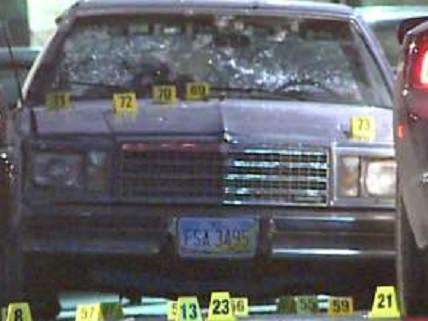Cleveland Police Settlement with DOJ to Include 'Exacting' Use of Force Rules, Like Offering Medical Assistance and Prohibiting Retaliatory Force
Lowered expectations.


Over the weekend, a judge found Office Michael Brelo, who jumped on the hood of a car to empty his clip into a windshield, not guilty on charges related to the death of Timothy Russell and Malissa Williams in that shooting. In his decision, the judge ruled the state had not sufficiently proven Brelo's bullets were the ones that killed Russell and Williams.
That December 2012 shooting led the city government of Cleveland to request the Department of Justice (DOJ) examine its use of force policies and other police practices. This past December, the DOJ found "structural and systemic deficiencies and practices" that contributed to the use of unreasonable force by police. It was the second time in the last decade the DOJ had investigated the Cleveland Division of Police (CDP). In the early 2000s, the DOJ found problems with Cleveland's use of deadly force policies, but a series of reforms, including prohibiting cops from shooting at moving vehicles unless facing an imminent threat, expanded training, and a shooting review team satisfied the DOJ's concerns.
This time, the settlement between the DOJ and CPD includes reforms such as a community police commission, requiring the use of de-escalation techniques by cops, prohibiting retaliatory force, implementing "bias-free policing principles," creating a mental health response advisory committee, more training, more "equipment and resources", and a more diverse recruiting policy.
The New York Times describes the new use of force policies as "some of the most exacting standards in the nation." From the DOJ press release, those standards are:
requirements for the use of de-escalation techniques whenever possible and appropriate, a prohibition on retaliatory force, mandatory reporting and investigation standards following use of force, and medical care for the subjects of force.
These seem more like they should be the baseline for the use of force not the ceiling. Despite added layers of community involvement and purported oversight, the DOJ settlement does not appear to mention any reforms of the disciplinary process that would make it easier to fire bad cops before they get themselves put on trial.


Show Comments (34)